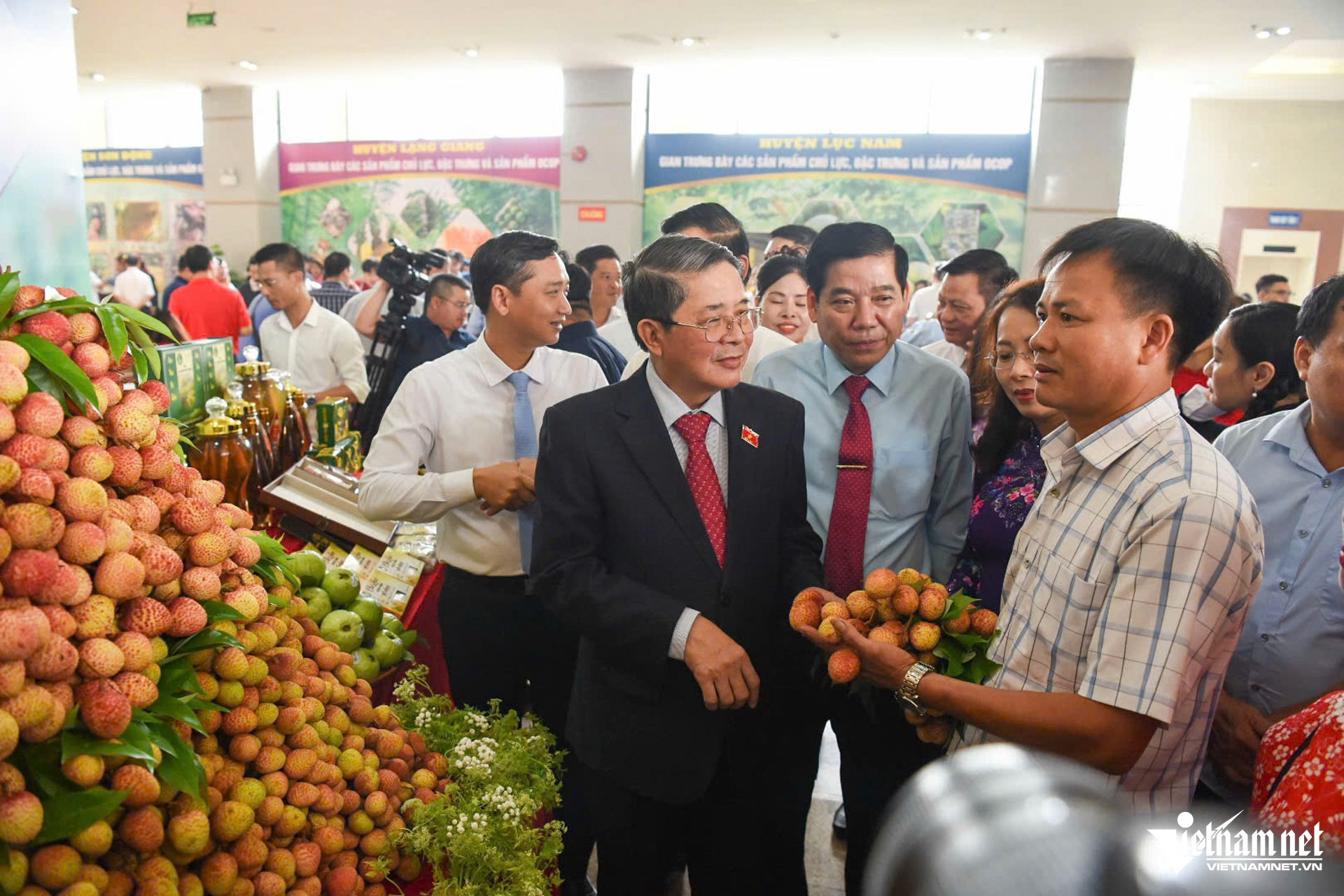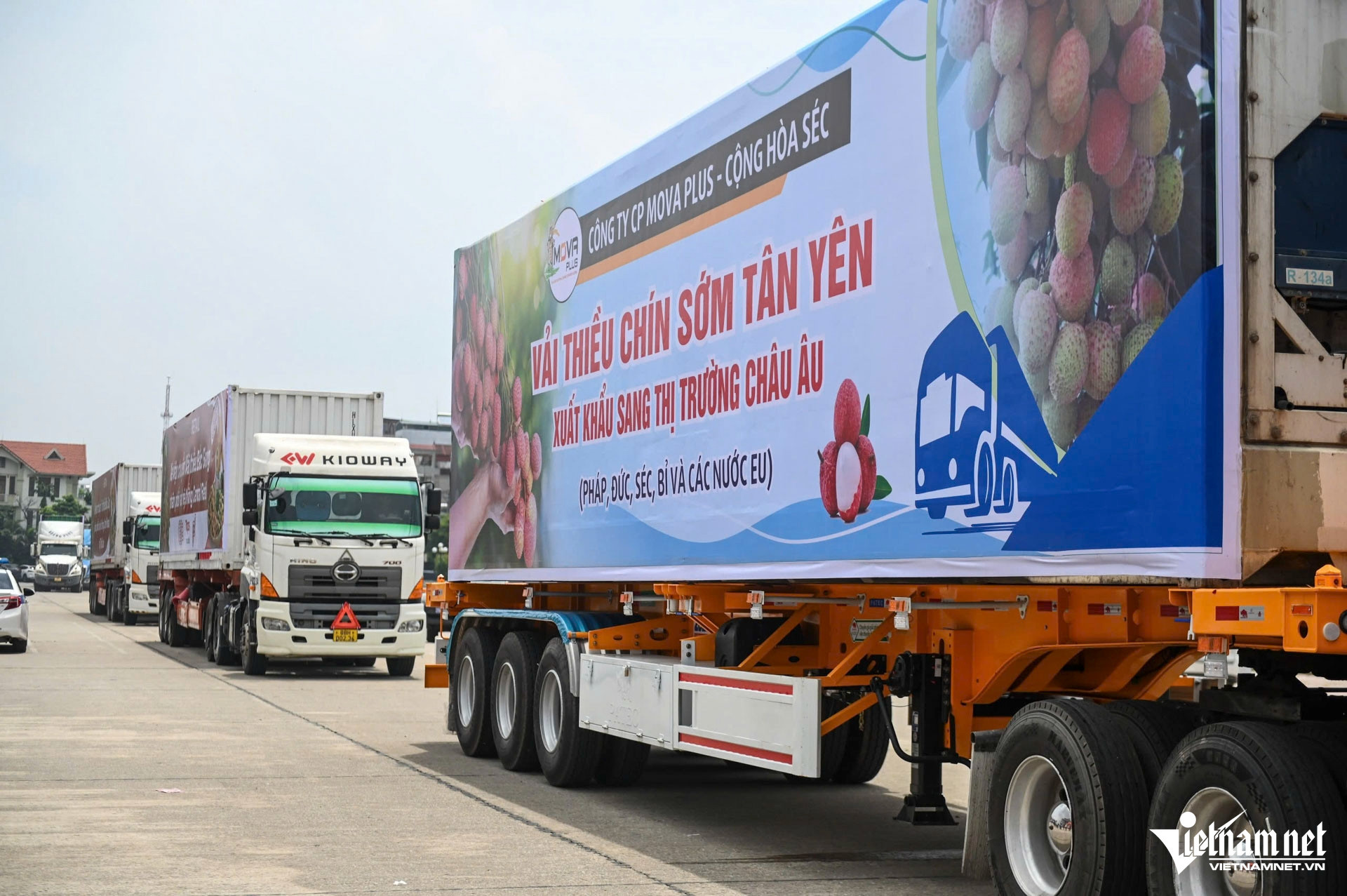Bac Giang’s signature lychee crop officially enters its 2025 harvest season, with the province expecting to supply around 165,000 tons to domestic and international markets. Authorities have committed to ensuring quality, traceability, and full support for enterprises involved in distribution.

On May 28, the Bac Giang People’s Committee held a conference to promote the consumption of lychees and key OCOP (One Commune, One Product) agricultural products for 2025.
Vice Chairman of the Bac Giang People’s Committee, Pham Van Thinh, affirmed that Bac Giang remains Vietnam’s lychee capital, cultivating approximately 29,700 hectares this year, accounting for over 60% of the province’s total fruit-growing area. The expected lychee yield is about 165,000 tons.
Bac Giang’s lychees are grown according to VietGAP, GlobalGAP, and organic standards, and the product’s geographical indication is protected in eight countries. The fruit is exported to more than 30 countries, meeting stringent quality demands from markets such as Japan, the United States, the EU, and China.
The province has assigned growing area codes to nearly 300 regions, covering more than 21,000 hectares. It has also invested in a synchronized system for processing, packaging, and logistics to serve both domestic and export markets.
In addition to lychees, Bac Giang boasts hundreds of OCOP products rated three stars or higher, along with 56 key, distinctive, and potential agricultural items. The province is actively implementing a comprehensive strategy covering production, processing, preservation, and consumption to enhance the value of its agricultural products.

During the conference, Bac Giang pledged to accompany businesses, offering full support for surveys, contracts, and product consumption. The province emphasized its commitment to transparency in origin, adherence to technical standards, and proactive resolution of difficulties throughout the distribution process.
Many participants proposed solutions such as leveraging the logistics system to cut transportation costs, boosting product promotion, expanding modern distribution channels, and applying e-commerce to lychee sales.
In his speech, Nguyen Duc Hai, Vice Chairman of the National Assembly, praised Bac Giang’s long-standing efforts, especially in rationally planning cultivation zones, applying advanced agricultural technologies, and strengthening production-consumption linkages.
He highlighted how local farmers proactively adopted VietGAP, GlobalGAP, and organic farming methods, improving quality and safeguarding the brand reputation of Bac Giang lychees.
Nguyen Duc Hai also called on Bac Giang to focus on upgrading fruit varieties and invest heavily in scientific research and post-harvest technologies to extend shelf life and meet the demands of distant, high-standard markets.
In parallel, he recommended expanding export markets, particularly China, Japan, the EU, the US, Southeast Asia, and the Middle East, while establishing a synchronized domestic distribution network to ensure that Bac Giang's fresh lychees reach consumers quickly and in top condition.
Regarding the Chinese market, Nguyen Duc Hai urged relevant agencies and Chinese partners to strengthen trade connections, facilitate the entry of businesses and traders for direct purchasing, and reduce administrative procedures. He advocated for a fast-track process to prioritize lychee imports into China, ensuring speed and convenience.
Chairman of the Bac Giang People’s Committee, Nguyen Viet Oanh, added that the province will continue fostering friendly relations with China while leveraging international trade agreements to explore new markets.
Bao Khanh